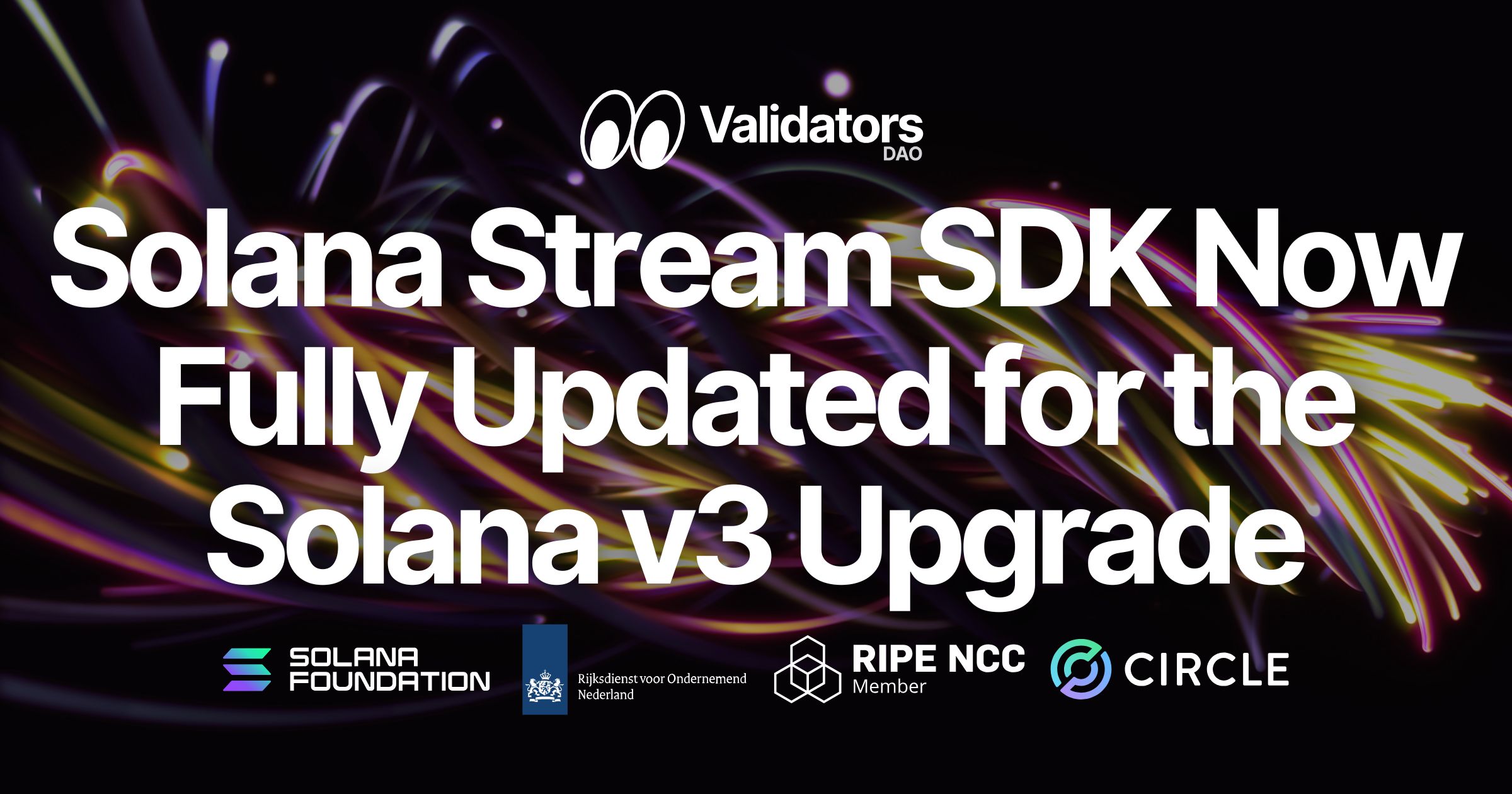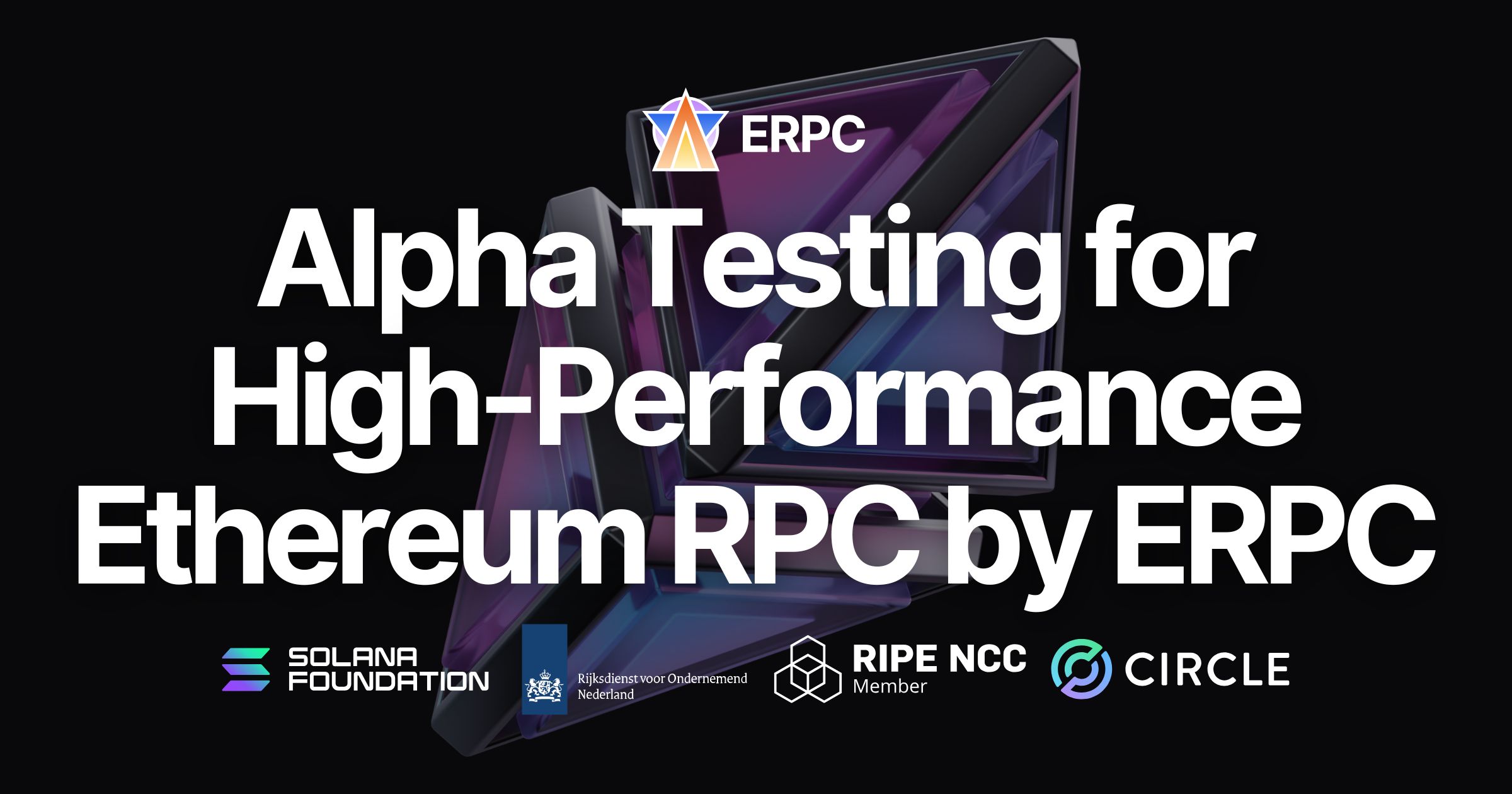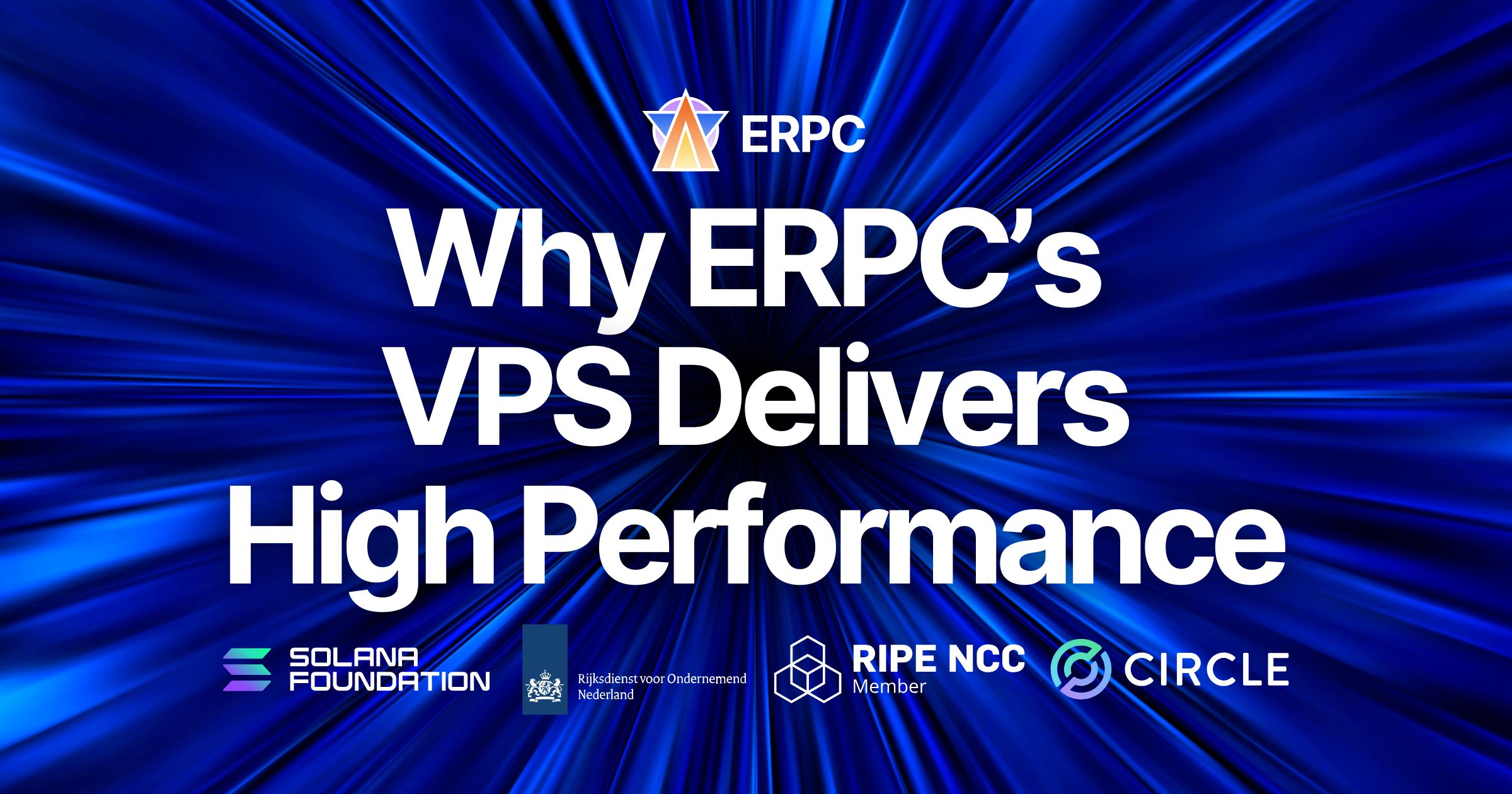How to Build the Fastest Solana Infrastructure
How to Build the Fastest Solana Infrastructure
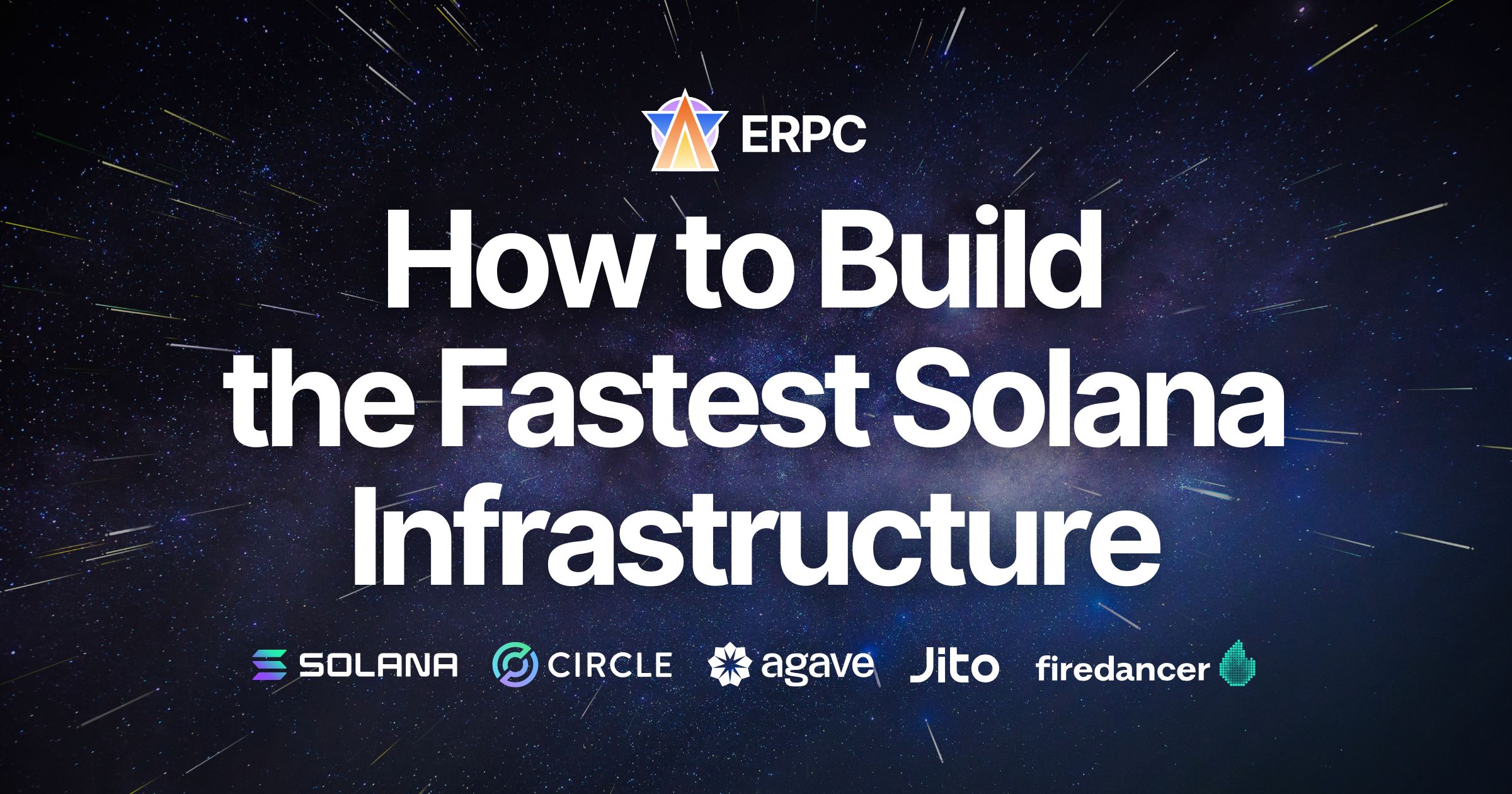
ERPC supports numerous Solana traders and projects, frequently addressing questions about latency optimization. In this article, we outline key technical considerations for constructing optimal Solana infrastructure.
Crucial Considerations for Solana Infrastructure
Many high-frequency traders on Solana understand that placing servers geographically closer reduces latency. However, the following points are especially important:
- Stream data reception (gRPC, ShredStream, etc.)
- Transaction data transmission (POST requests)
These two elements may appear similar, but they possess distinctly different characteristics.
The Pitfall of "Stream" Communication
The term "stream" suggests speed, but stream communication often involves significantly higher latency.
| Communication Type | Latency Factor (vs. Ideal Ping) | Characteristics |
|---|---|---|
| Ideal Ping | 1x | Minimum latency in ideal conditions |
| POST (Single Send) | Approx. 2-3x | Simple, relatively lightweight communication |
| Stream Communication | Approx. 5x | Continuous connection with high overhead |
Stream communication maintains continuous connections, amplifying latency due to distance. This is particularly impactful when handling real-time Solana data.
Infrastructure Should Be Closer to the "Stream"
In most cases, stream data reception and transaction sending occur in separate data centers. It's crucial to position your infrastructure as close as possible to the stream source.
Because stream latency significantly exceeds POST latency, aligning infrastructure with the stream source greatly reduces overall latency.
Achieving Maximum Speed with ERPC’s Zero-Distance Communication
ERPC infrastructure provides the fastest environment through:
- Solana RPC endpoints and VPS/Bare Metal servers located within the same network
- Zero-distance communication, bypassing external internet routing
This setup achieves an approximate ping of 0.1ms between dedicated servers.
Benefits of ERPC’s VPS/Bare Metal Servers
ERPC’s VPS and Bare Metal servers are optimized for real-time Solana data processing.
| Specification | VPS | Bare Metal |
|---|---|---|
| CPU Clock Speed | Up to 4.15GHz (latest AMD EPYC CPUs) | 5GHz+ (latest CPUs) |
| Memory Type | DDR5 RAM (high bandwidth) | DDR5 RAM (high bandwidth) |
| Storage | NVMe SSD (Gen4+) | NVMe SSD (Gen4+) |
| Network Bandwidth | 1Gbps+ | 10Gbps+ |
| Resource Sharing | Virtualized (shared resources) | Physical (fully dedicated) |
| Recommended Use | Global distribution, cost-efficiency | Regional trading, max performance |
Pricing
Dedicated Bare Metal Servers
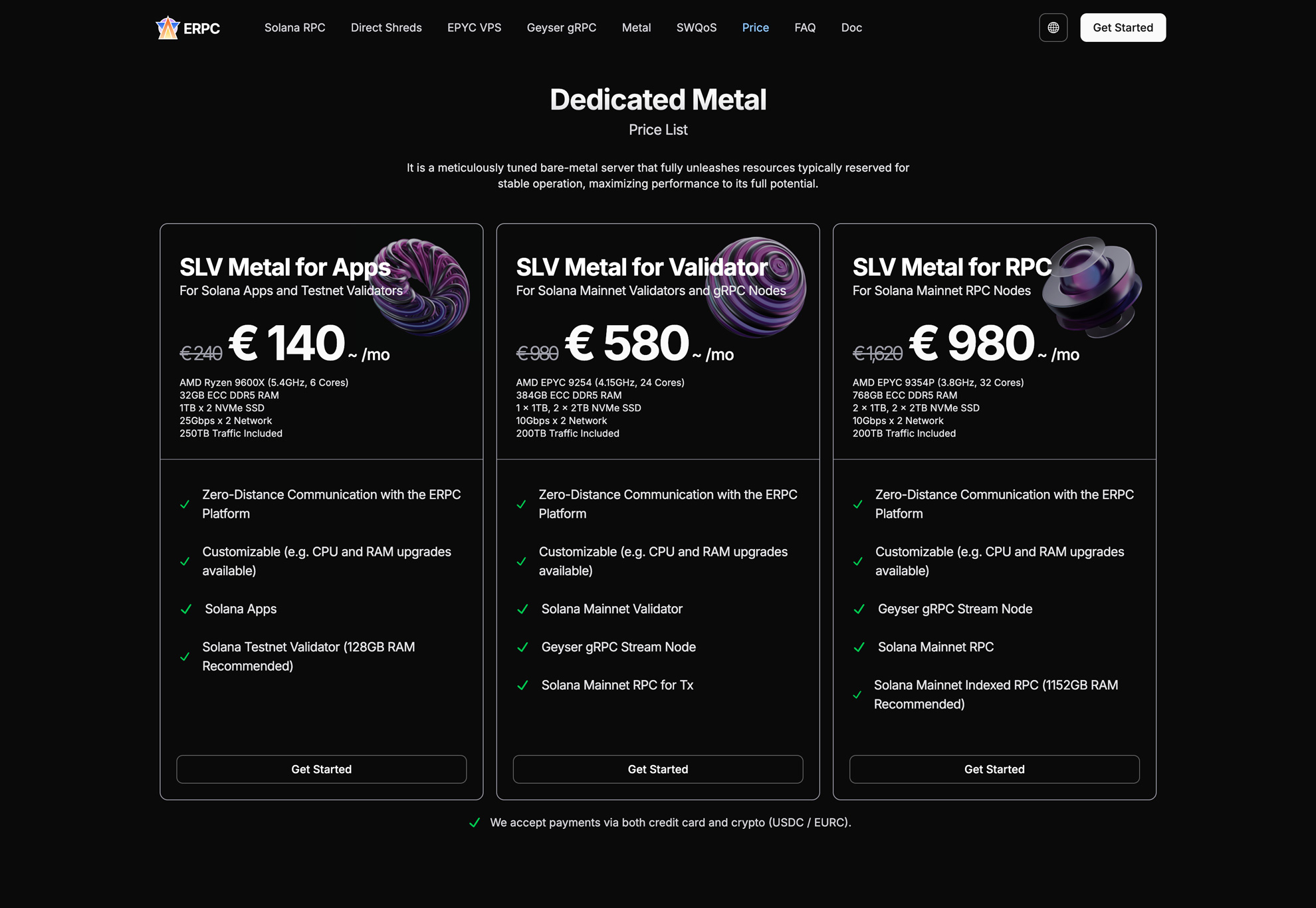
EPYC VPS
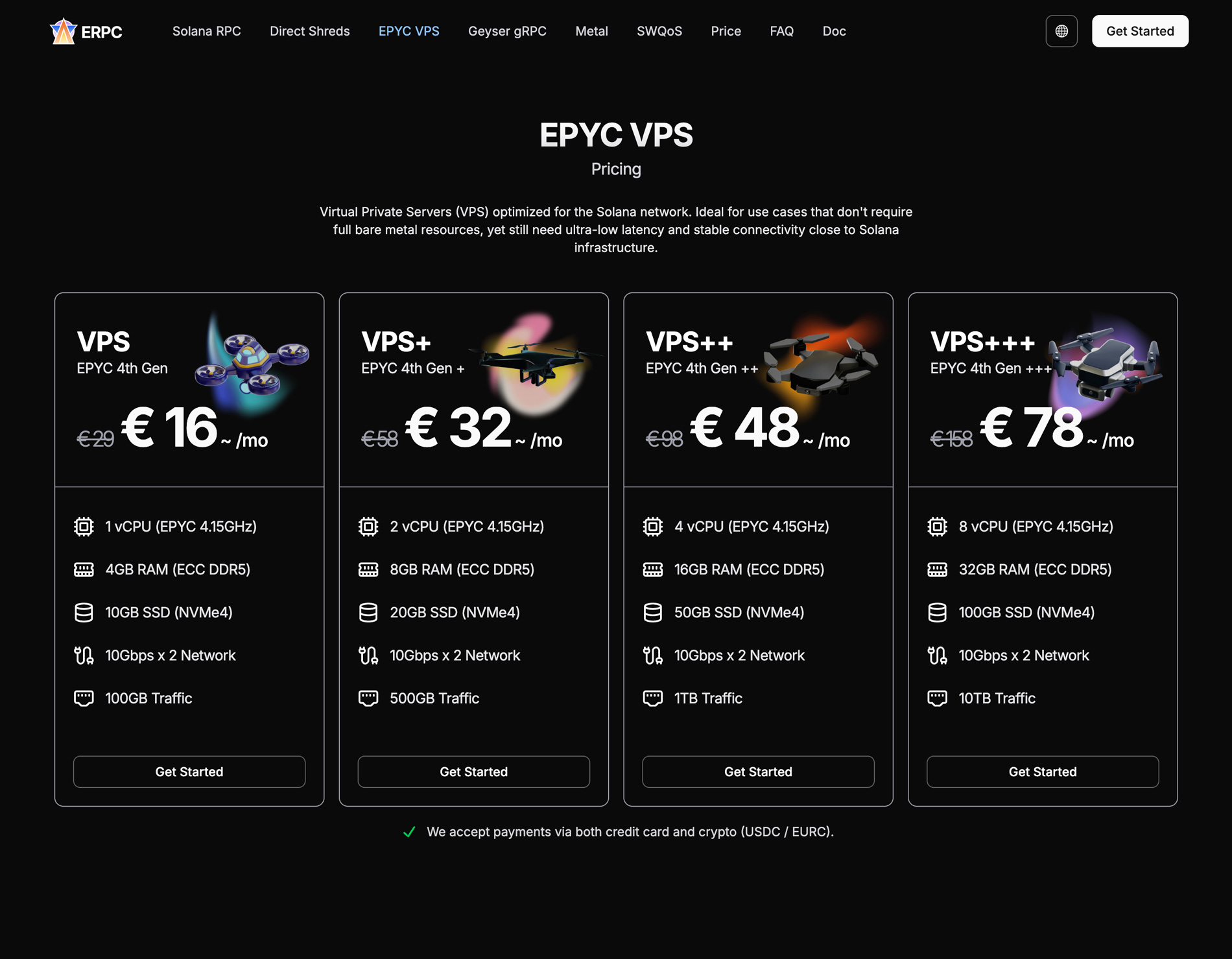
Optimization and Monitoring
ERPC also provides comprehensive server monitoring:
- Recommended resource utilization: 30-40% for CPU, RAM, and Storage for optimal performance
- Monitoring Tools: Detailed visualization using Prometheus and Grafana
- Monitoring Service: Available for €16/month
Continuous optimization and monitoring ensure a fast, stable Solana trading environment.
Technical Support and Free Trial
For specific inquiries or to test ERPC’s zero-distance infrastructure, please reach out through Validators DAO’s official Discord:
ERPC is committed to continually supporting your project's success. We look forward to assisting you.


